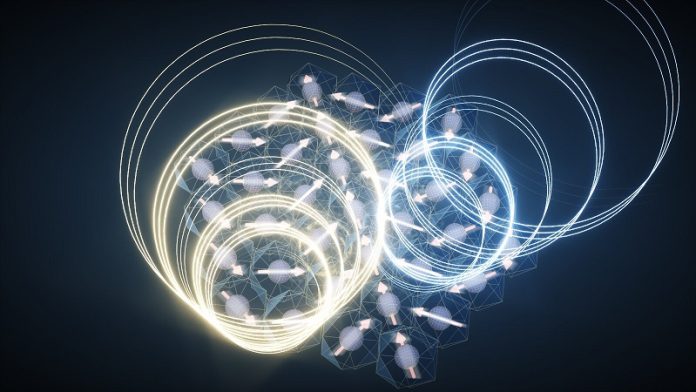
Scientists have made a significant discovery with a special material called nickel iodide (NiI2) that could revolutionize computer memory, chemical sensors, and quantum computers.
Researchers from The University of Texas at Austin and the Max Planck Institute for the Structure and Dynamics of Matter (MPSD) found that NiI2 has exceptional properties that make it ideal for creating devices that are both incredibly fast and compact.
Their study was published in the journal Nature.
NiI2 belongs to a group of materials known as multiferroics, which have a unique ability called magnetoelectric coupling.
This means you can change the magnetic properties of the material using an electric field and vice versa. NiI2 was found to have stronger magnetoelectric coupling than any other known material, making it a top candidate for future technological advancements.
“Unveiling these effects at the scale of atomically thin nickel iodide flakes was a formidable challenge,” said Frank Gao, a postdoctoral fellow at UT and co-lead author of the study.
“But our success presents a significant advancement in the field of multiferroics.”
“Our discovery paves the way for extremely fast and energy-efficient magnetoelectric devices, including magnetic memories,” added graduate student Xinyue Peng, the project’s other co-lead author.
Electric and magnetic fields are crucial for modern technologies. In some materials, electric charges and magnetic moments align in such a way that they create electric polarization or magnetization, known as ferroelectrics or ferromagnets.
However, in multiferroic materials like NiI2, both electric and magnetic orders coexist and are intertwined. This means a change in one order causes a change in the other, making these materials perfect for creating faster, smaller, and more efficient devices.
To achieve their results, the researchers used ultrashort laser pulses to excite NiI2 and then observed the changes in its electric and magnetic orders.
They discovered that the strong magnetoelectric coupling in NiI2 is due to two factors: the interaction between electrons’ spin and orbital motion on the iodine atoms, known as spin-orbit coupling, and the unique magnetic order in nickel iodide, called a spin spiral or spin helix.
Materials like NiI2 have numerous potential applications, including compact and energy-efficient magnetic computer memory, components in quantum computing platforms, and chemical sensors for quality control and drug safety.
The research was led by Edoardo Baldini, assistant professor of physics at UT, and Angel Rubio, director of MPSD.
The study’s authors hope their findings will lead to the discovery of other materials with similar properties and further enhancements in magnetoelectric coupling in NiI2.



